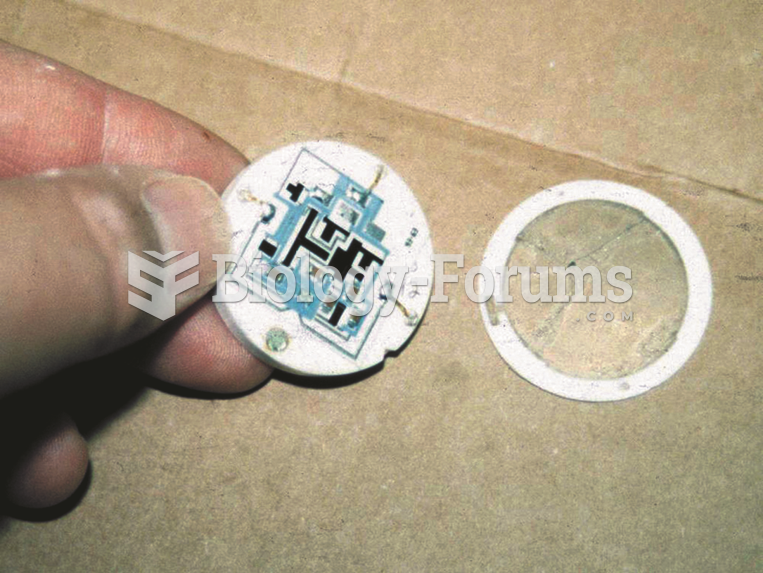|
|
|
Approximately one in four people diagnosed with diabetes will develop foot problems. Of these, about one-third will require lower extremity amputation.
Drugs are in development that may cure asthma and hay fever once and for all. They target leukotrienes, which are known to cause tightening of the air passages in the lungs and increase mucus productions in nasal passages.
According to the CDC, approximately 31.7% of the U.S. population has high low-density lipoprotein (LDL) or "bad cholesterol" levels.
More than one-third of adult Americans are obese. Diseases that kill the largest number of people annually, such as heart disease, cancer, diabetes, stroke, and hypertension, can be attributed to diet.
More than 2,500 barbiturates have been synthesized. At the height of their popularity, about 50 were marketed for human use.
 The bimetallic temperature sensor spring controls the amount of silicone that is allowed into the ...
The bimetallic temperature sensor spring controls the amount of silicone that is allowed into the ...
 A mini clamp-on digital multimeter can be used to measure alternator output and unwanted AC current ...
A mini clamp-on digital multimeter can be used to measure alternator output and unwanted AC current ...





